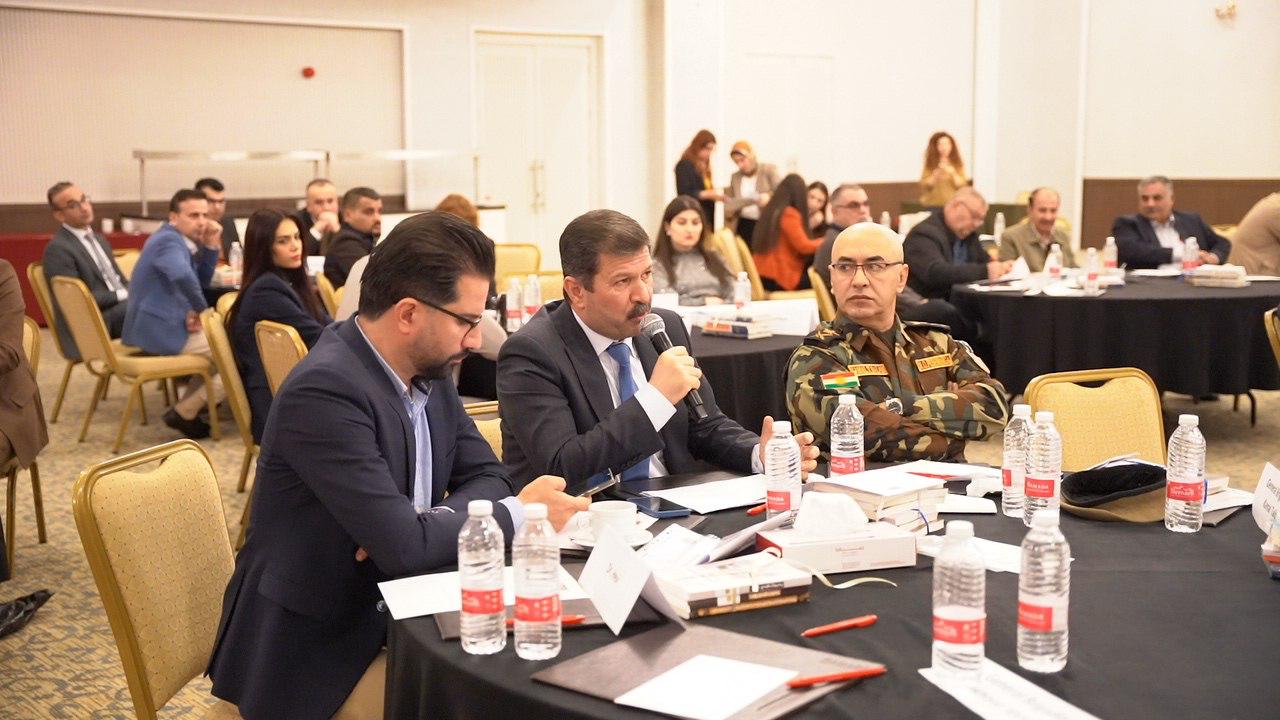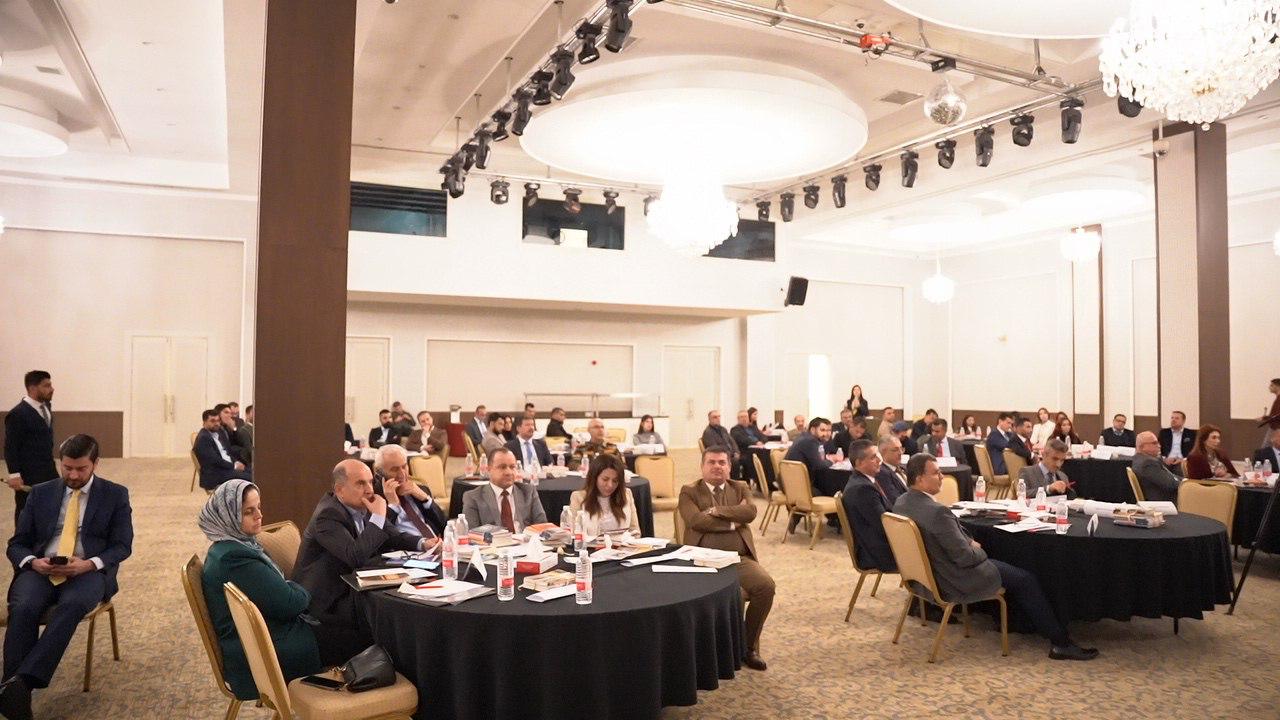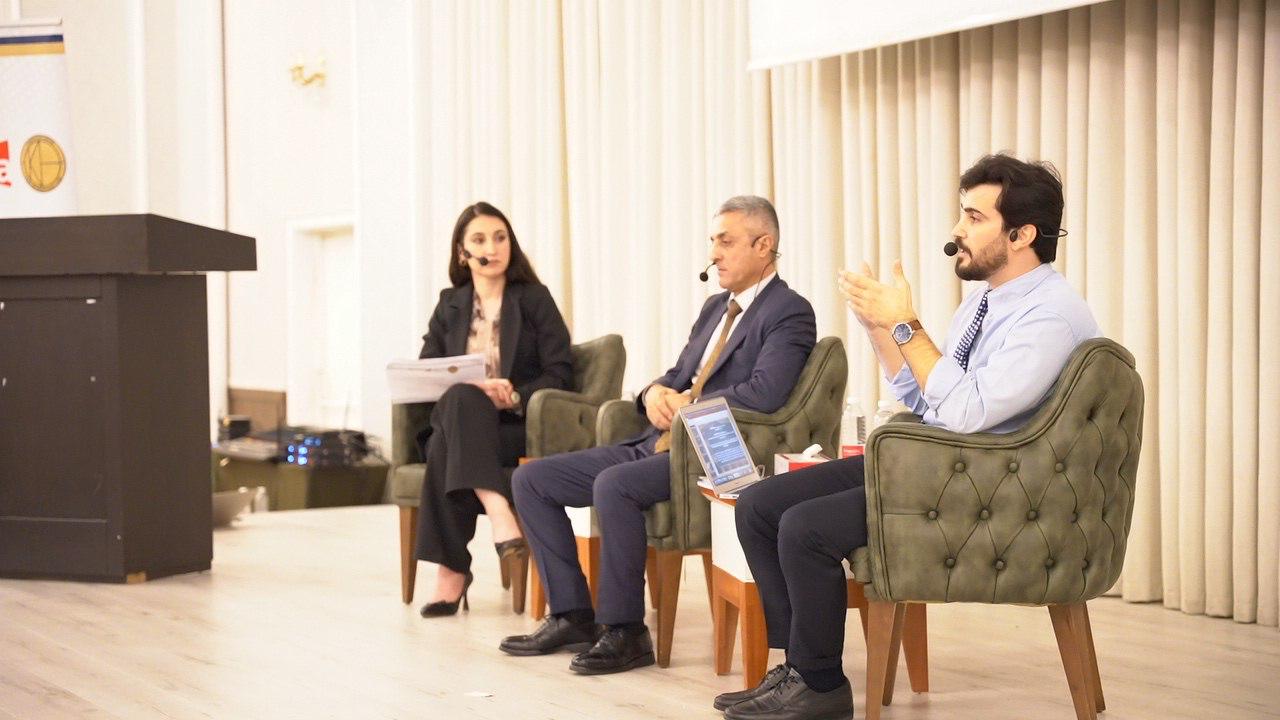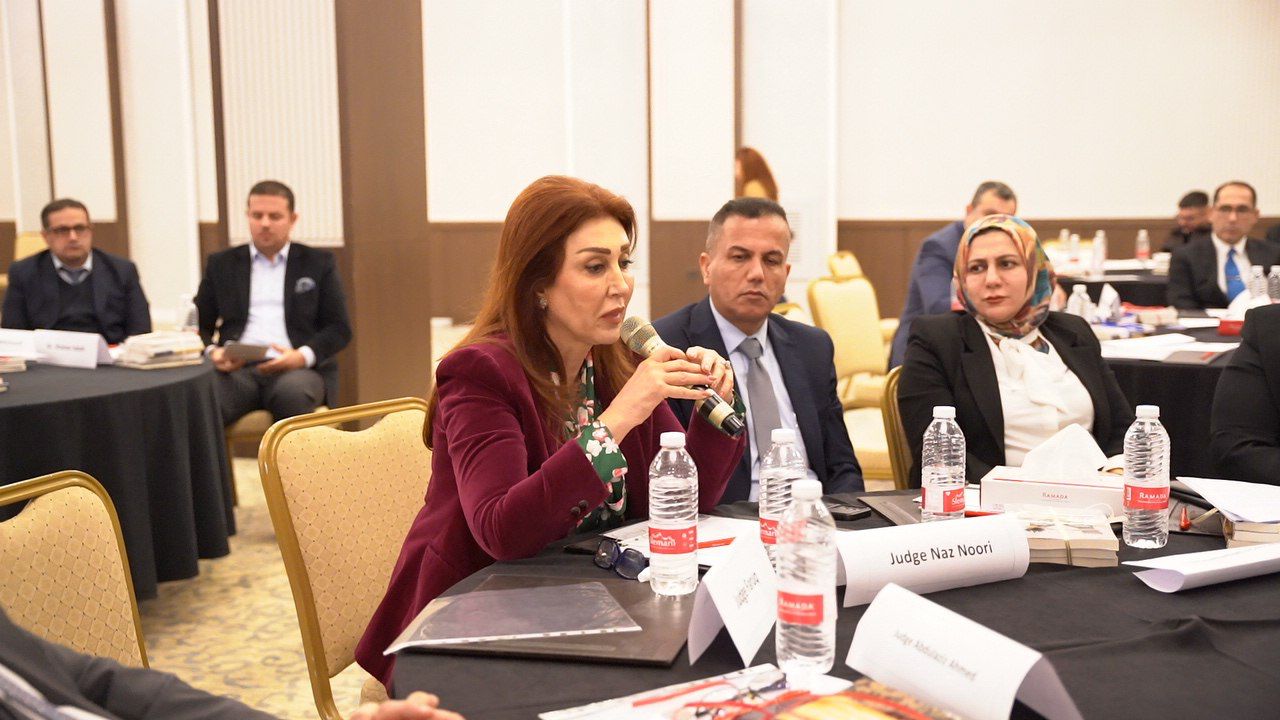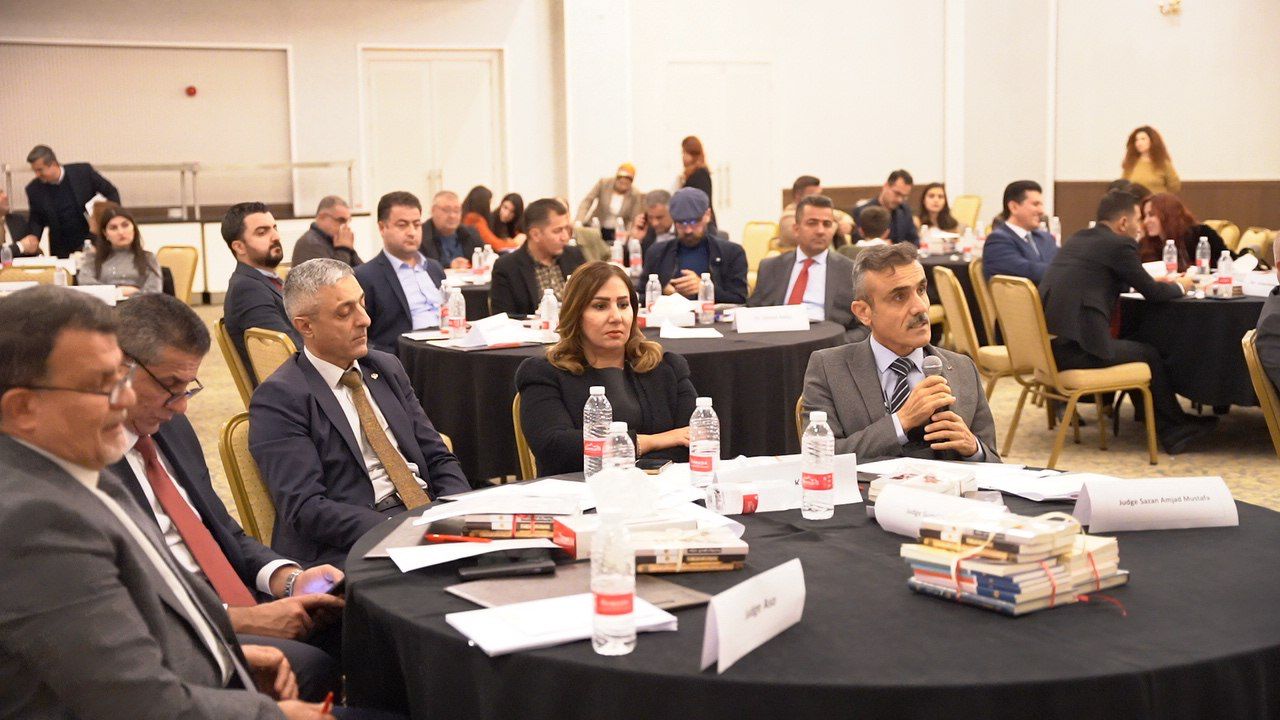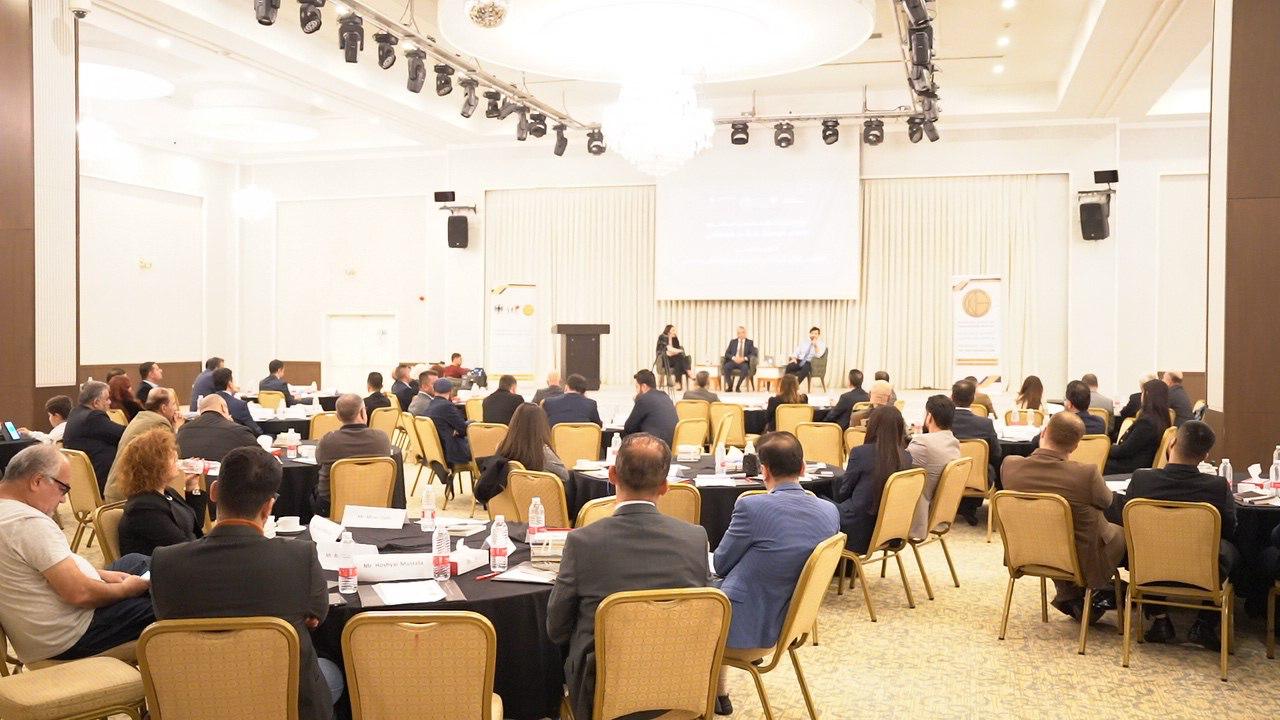On December 16, 2023, the Kurdistan
Center for International Law (KCIL) organized its second annual conference on
international law, titled “International Criminal Justice in KRI – Opportunity
for Application,” in Sulaimani. The event received financial support from IFA
and the German Ministry of Foreign Affairs.
The conference, attended by judges,
prosecutors, judicial invistigators, academics, civil society activists, and
representatives from the Ministry of Peshmerga and the Kurdistan Parliament,
commenced with a speech from the Board of Directors of KCIL. The presentation
highlighted the center’s efforts in domesticating international criminal law. A
final project video showcased KCIL’s approach and mechanisms in implementing
international criminal law, emphasizing the importance of domestication. The
video also featured testimonials from the KCIL beneficiaries in 2023,
emphasizing the need to activate this issue in legislative, judicial, and
governance institutions.
The first panel was entitled ‘Towards
International Criminal Justice in Kurdistan,’ and Dr. Ebad Rohi, Dr. Soran
Barzanji, and Judge Howard Morrison participated in it. Three different topics
were discussed: the first is ‘Domesticating ICL as a Mechanism for
Strengthening of the Judicial System in Kurdistan,’ the second is ‘The Efforts
of Parliament and KRG for Domesticating ICL in Kurdistan,’ and the third is
‘The Importance of Domesticating ICL in Kurdistan.’ The second panel of the
conference was entitled ‘Complexity of International Criminal Justice and
Kurdistan Judicial System.’ This panel, attended by ‘Azad Walatbegi’ and Dr.
Hassan Mustafa, included two topics: the first is ‘Hybrid Court Models for Prosecuting
ISIS fighters in Kurdistan,’ and the second is ‘Individual Criminal
Responsibility in Using Drones in ICL.
After the conclusion of the two
panels, members of the Executive Board of the KCIL,
addressed the comments and suggestions of the conference participants.
Generally, the comments presented rich suggestions and questions for argumentation
on the issue of the domestication of ICL and how to benefit from it in the
ongoing search for justice and accountability of perpetrators of crimes
committed against the Kurdish nation, from the previous regime to the genocide
of the Yazidis, within the framework of the domestic judicial system and
building national support for it, from individual thinking to the entire
legislative and judicial system.
During this part of the conference,
the discussions were intense, and genuine sympathy was observed for the issue
of domestication. Alongside the discussions, the project team of the KCIL,
which included enthusiastic legal background volunteers noted all the comments
and suggestions so that the KCIL that can share them with the relevant
stakeholders.
